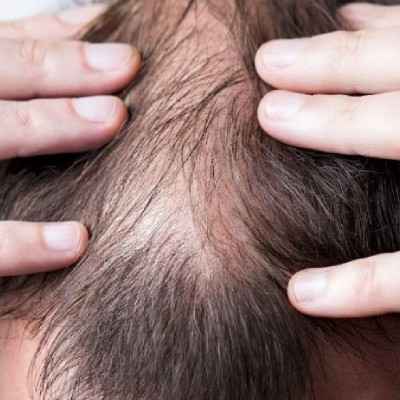Your Weight Loss Surgery Can Cause Hair Loss

19 March 2019

Hair Experts @ AHS

Usually, about 90 percent of hair are in a growth phase and 10 percent are in a resting phase at any given time, which means that you are ...
Usually, about 90% of hair is in a growth phase and 10% in a resting phase at any given time. This balance ensures that you lose far less hair than you grow, making hair loss unnoticeable. But sometimes, this changes.
A common complaint and fear among weight loss surgery patients is post-operative hair loss. Hair is a vital part of our self-image and body image, but biologically, it is not essential to survival. That’s why nutrition plays a key role in hair health — the body prioritizes critical organs like the brain and heart over hair when nutritional resources are limited.
Hair loss has many causes. After weight-loss surgery, the most common type is a diffuse loss called telogen effluvium, which can stem from both nutritional and non-nutritional factors.
Weight-loss Surgery and Hair Loss
Nutritional factors aside, weight loss surgery patients already face two key risks: major surgery and rapid weight loss — both of which can contribute to hair loss. When hair enters the telogen phase due to these stressors, it continues to fall out until those follicles cycle back naturally. There is no way to reverse the process mid-cycle.
Typically, in the absence of a dietary issue, hair loss does not last more than six months. Since the follicles remain intact during telogen effluvium, regrowth occurs with time and proper care. Most doctors advise that patients maintain good nutritional intake and be patient, as the hair will usually grow back.
However, certain nutritional deficiencies can trigger or worsen telogen effluvium. Consider a possible nutritional cause if:
- Hair loss continues beyond one year after surgery
- The patient struggles with eating or is non-compliant with supplementation
- Hair loss starts more than six months after surgery
- Blood tests show low levels of zinc, ferritin, or protein
- There’s more rapid weight loss than expected
- Other deficiency symptoms are present
Conclusion
Hair loss can be distressing for weight-loss surgery patients, and many attempt to self-manage through nutritional adjustments. However, late-onset hair loss may indicate specific deficiencies — especially iron — which require medical attention and proper treatment.
Early-stage hair loss is often not preventable, as it's typically due to the effects of surgery and rapid weight loss. That’s when you should consider professional hair loss solutions like those offered by Advanced Hair Studio. With over 300 branches and alliances worldwide, Advanced Hair Studio has helped millions with effective, affordable hair restoration treatments.

Stay Updated
Subscribe to our email newsletter for helpful tips and valuable resourses
Be an influencer
Join forces with Advanced Hair Studio! Explore exciting collaboration opportunities tailored for influencers. Let's redefine haircare together.
Connect now












